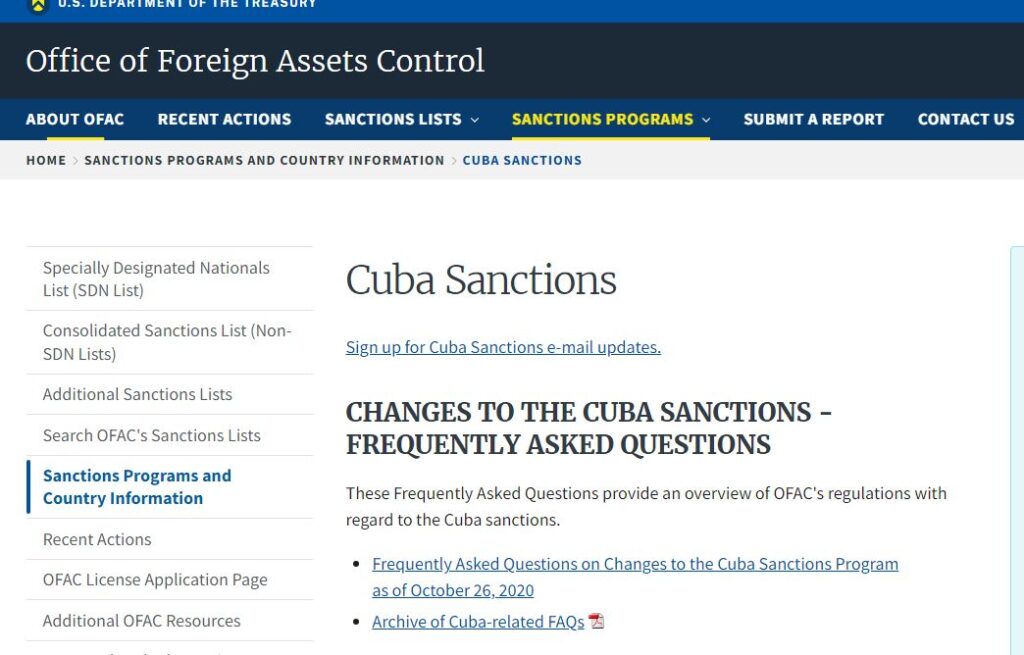Cuba Sanctions 2025: Business Aviation Destination Guide

Please note that this article and the materials available herein are for informational purposes only and not for the purpose of providing legal advice. You should contact your attorney to obtain legal advice before operating to Cuba.
The U.S. Department of Commerce, through its Bureau of Industry and Security (“BIS”), and the U.S. Department of Treasury, through its Office of Foreign Assets Control (“OFAC”), have issued U.S. sanctions rules applicable to Cuba, published in the Federal Register.
The following is an overview of what you need to know:
How the Sanctions Impact Business Aviation
General aviation N-registered aircraft operating under FAA Part 91 are not authorized to travel to Cuba, directly or indirectly, from the U.S. or another country. N-registered private and corporate aircraft in general aviation are no longer eligible for the license exception AVS to Cuba, and a Temporary Sojourn license will be required from BIS for travel to the country.
However, and most importantly, the final rule states “such licenses will be issued only in extraordinary circumstances. Thus, non-commercial aircraft and non-cargo vessels generally will be prohibited from going to Cuba.”
Scheduled and chartered flights are authorized to operate with BIS license exception AVS
A company that has an Air Carrier Operating Certificate issued under Part 135 and is considered a commercial operator and remains eligible to conduct operations to Cuba under the BIS license exception AVS (meaning that a separate BIS license is not required).
Note: Passengers on Part 135 operated aircraft must comply and sign certifications of their purpose for travel that coincides with OFAC’s travel restrictions and must fall into one of the following 12 categories of authorized travelers to Cuba:
- Family visit
- Official business of the U.S. government, foreign governments, and certain intergovernmental organizations
- Journalistic activity
- Professional research and professional meetings
- Educational activities (as noted herein)
- Religious activities
- Public performances, clinics, workshops, athletic and other competitions, and exhibitions
- Support of the Cuban people
- Humanitarian projects
- Activities of private foundations or research or educational institutes
- Exportation, importation, or transmission of information or informational materials
- Certain export transactions that may be considered for authorization under existing Department of Commerce regulations and guidelines with respect to Cuba or engaged in by U.S.-owned or –controlled foreign firms
Air Ambulance Flights
The AVS exception is still available for air ambulance services to Cuba.
Additional information worth noting:
As of March 25, 2025, the recordkeeping requirement for sanctioned items has changed. The retention period for documents related to sanctioned countries is now 10 years (up from 5 years). Specifically, individuals under U.S. jurisdiction must:
- Retain a customer certification for at least 10 years indicating the general license authorizing travel or remittances to Cuba.
- For customers traveling under a specific license, keep either the license number or a copy of the license on file.
Conclusion
Cuba is a comprehensively sanctioned country. To minimize risk, it is recommended to always be diligent and check with your legal department or trade counsel when planning a trip to Cuba and to plan early.





